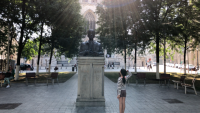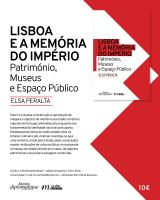Empire
Articles tagged with Empire
Tag Archive
- A Invenção do Outro
- activists
- African heritage
- Afrikanische Straße
- Alex kahl
- annett stenzel
- archive de documentation
- Arte Contemporênea
- artist
- artists
- Baía
- Bienal de Coimbra
- black film festival
- black history
- black power
- brazilian film
- Carola Saavedra
- choreography
- circulação de saberes
- Cláudia Simões
- Colômbia
- communality
- cotas
- Cristiano Ronaldo
- cuban communist party
- cultural
- Danting Chen
- development
- deverbatives
- emancipação
- far-right
- Felix Shumba
- Festival Alkantara
- Festival de Músicas do Mundo
- FLÁVIO CARDOSO
- gastronomia
- Gaza
- geometry
- Harlem Renaissance
- herero
- Hip-Hop Tuga
- human rights
- humor
- imperialism
- Índios
- Ingrid Mwangi
- Jeux Sans Frontières
- Jornalism
- journey
- JSF #2
- lovers rock
- lusitanismo
- Luso-Tropicalism
- mapa
- Mário Macilau
- martin Luther king jr
- meteorisation
- Milita
- militant cinema
- Mónica Miranda
- Monuments
- Monuments in Reverse
- morna
- Munique
- museu da descoberta
- New Encyclopedia of Africa
- Nicholas Mirzoeff
- nominals
- Octavia Butler
- Paisagens Efémeras
- pan African & arts festival
- Paul Theroux
- Pé de Xumbo
- perfomance
- periphery
- post-colonial
- Rabbit Hole
- radio
- refineries
- Resgate
- resources
- Ricardo Farinha
- rijksmuseum
- Ruy Guerra
- Sado
- satellite
- settlers
- Sexual Misconduct in Academia: Informing an Ethics of Care in the University
- social construct
- social inclusion
- Soviet Africa
- space
- subjectividade
- surrealism
- tchiloli
- teatro
- tourism
- transatlantic slave trade
- William Shatner e Amílcar Cabral
- “Sexual Misconduct in Academia”
 Eurocentric power needs to create narratives about colonial history in order to control interpretations of it. Concepts of law and justice have played an important role in this. Also today, the idea of justice is used to approve violent migratory control policies, including the aggressive persecution, detention, and deportation of persons.
Eurocentric power needs to create narratives about colonial history in order to control interpretations of it. Concepts of law and justice have played an important role in this. Also today, the idea of justice is used to approve violent migratory control policies, including the aggressive persecution, detention, and deportation of persons.  Its purpose is to analyse the several examples by which “images” related to the imperial history of Portugal are built and copied, thus being understood as a fundamental and articulating axis of the Portuguese national identity. The focus is therefore on a “image-memory” or a memory-representation, authorized by the State, by its corporation and by institutions of public culture and not so much on a memory-routine, passed on in the realm of daily social interactions, or a memory-remembrance, passed on verbally.
Its purpose is to analyse the several examples by which “images” related to the imperial history of Portugal are built and copied, thus being understood as a fundamental and articulating axis of the Portuguese national identity. The focus is therefore on a “image-memory” or a memory-representation, authorized by the State, by its corporation and by institutions of public culture and not so much on a memory-routine, passed on in the realm of daily social interactions, or a memory-remembrance, passed on verbally. ![Liberation struggles, the 'Falling of the Empire’ and the birth [through images] of african nations Liberation struggles, the 'Falling of the Empire’ and the birth [through images] of african nations](https://www.buala.org/sites/default/files/imagecache/thumb/2016/01/filmerdc.jpg) The fortieth anniversary of Portuguese decolonisation of Africa has acted as a catalyst in discussing how Portugal ‘imagined’ colonial politics through moving images and how these propagandist portrayals began to be questioned by the Portuguese ‘Novo Cinema’. This can be seen in works that were censured and prohibited. Portuguese colonial cinematographic representations were later challenged by films made in the context of the liberation movements and by images that emerged out of the national cinematographic projection (Frodon) of the new Portuguese-speaking African countries.
The fortieth anniversary of Portuguese decolonisation of Africa has acted as a catalyst in discussing how Portugal ‘imagined’ colonial politics through moving images and how these propagandist portrayals began to be questioned by the Portuguese ‘Novo Cinema’. This can be seen in works that were censured and prohibited. Portuguese colonial cinematographic representations were later challenged by films made in the context of the liberation movements and by images that emerged out of the national cinematographic projection (Frodon) of the new Portuguese-speaking African countries. 